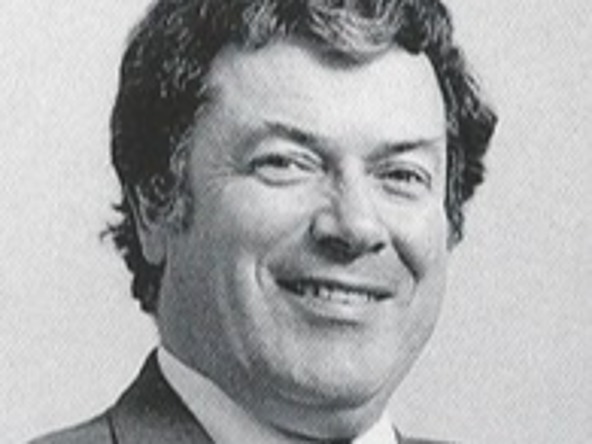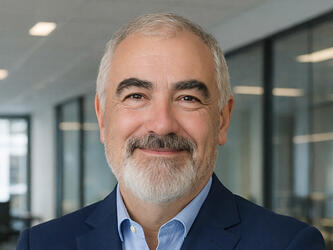Obituary: Philip Barnard

Philip Barnard, or Phil as he was known to everyone who worked with him, was one of the most successful members of the generation of market research agency heads who built the emerging business of British commercial market research into the global enterprise it is today. He was less well-known outside the business than Tony Cowling or Sir Robert Worcester, because the company in which he started working, and eventually led, was always owned by a larger organisation, initially Unilever, then briefly Ogilvy and Mather and, finally, WPP.
Phil grew up in Windsor where his father owned a small car repair business. He went to Windsor Grammar School for Boys, followed by three years at Cambridge University, studying natural sciences (biology), followed by a post graduate year studying experimental psychology.
At Cambridge, he met and married his wife, Jeannie. She introduced him to someone working at Unilever who suggested that the relatively new field of market research might interest him. He accordingly decided to join Research Bureau Ltd (RBL) in 1964 as a graduate trainee instead of his other options of being an academic or medical doctor.
RBL was a new Unilever company that had recently been created by merging Unilever’s market research division with the research department of Lintas, an advertising agency wholly owned by Unilever. Unilever’s objective was to merge the two rather different operating cultures to produce a more innovative and less bureaucratic kind of market research that would add value to its brands. After merging the two organisations, Unilever invested both money and management talent in growing the new business.
Phil was popular with his colleagues and rose swiftly inside RBL. Nine years after joining, he had risen to be a senior manager at RBL. During this period RBL had built its non-Unilever business from zero to 40% of its income. Unilever decided that the experiment had worked and expanded its RBL approach to its research departments in France, Germany, Italy, the Netherlands and Belgium. In 1973, Eileen Cole, chairman of RBL, was appointed chairman of Research International (RI) and Eileen and Phil moved to Rotterdam to run the RI head office. Phil lived in Scheveningen for five years with Jeannie and their two sons.
After five years in the Netherlands, the head office of RI moved to London and Phil moved with it. In 1984 he moved to Germany to become chairman of IVE/Research International, returning three years later to take over as chairman of RIUK.
By 1985, RI had become a profitable and innovative group of self-sufficient agencies in the top-five global research companies by revenue and was no longer viewed by Unilever as a core asset for its business. It was sold to the Ogilvy Group in 1986. Eileen Cole retired and Phil took over her role as global chairman. No longer constrained by Unilever’s lack of investment in its research agency business, Phil now embarked on an expansion programme, making acquisitions to fill the gaps in RI’s global coverage, including the US.
Meanwhile, Sir Martin Sorrell, Chairman of WPP acquired the Ogilvy Group in 1989. WPP already owned J Walter Thompson, acquired in 1987, along with its market research chain, the MRB Group, built around BMRB in the UK. Millward Brown was added to the WPP research agency portfolio and eventually, the three research agencies were merged into a new company called Kantar. These agencies all had very different strengths and cultures and were staffed by senior individuals with powerful egos. Phil’s evident track record of transforming the academic and uncommercial culture of the Unilever research departments persuaded Sorrell to give him the role of the first chairman and chief executive of Kantar. The merger was successful and Kantar was in the top three global research agencies by revenue when Phil retired in 1999.
He retired with Jeannie to a small village in Exmoor where he established the village store, and they settled down to enjoy a rural life for the next 25 years. Phil continued to work with the University of Arlington in Texas on their graduate research programme. The university has established funding to create the Philip Barnard Scholarship for students pursuing a master of science in marketing research (MSMR) degree.
The head office of Kantar always remained extremely small while Phil ran it. He had a good memory, was highly intelligent, personable, down to earth and approachable. He could also be extremely tough when necessary, but always fair. He believed in training and developing his staff within a culture with clear positive values. He actively enjoyed research, even when in very senior positions. Also, while in many ways, the ‘classic Unilever manager’, he was also very entrepreneurial and willing to take risks when he thought the time was right.
Philip Barnard died on 22 May 2025, leaving his wife Jeannie and two sons Ian and Scott.
By Adam Phillips, trustee at the Archive of Market and Social Research.

We hope you enjoyed this article.
Research Live is published by MRS.
The Market Research Society (MRS) exists to promote and protect the research sector, showcasing how research delivers impact for businesses and government.
Members of MRS enjoy many benefits including tailoured policy guidance, discounts on training and conferences, and access to member-only content.
For example, there's an archive of winning case studies from over a decade of MRS Awards.
Find out more about the benefits of joining MRS here.












0 Comments